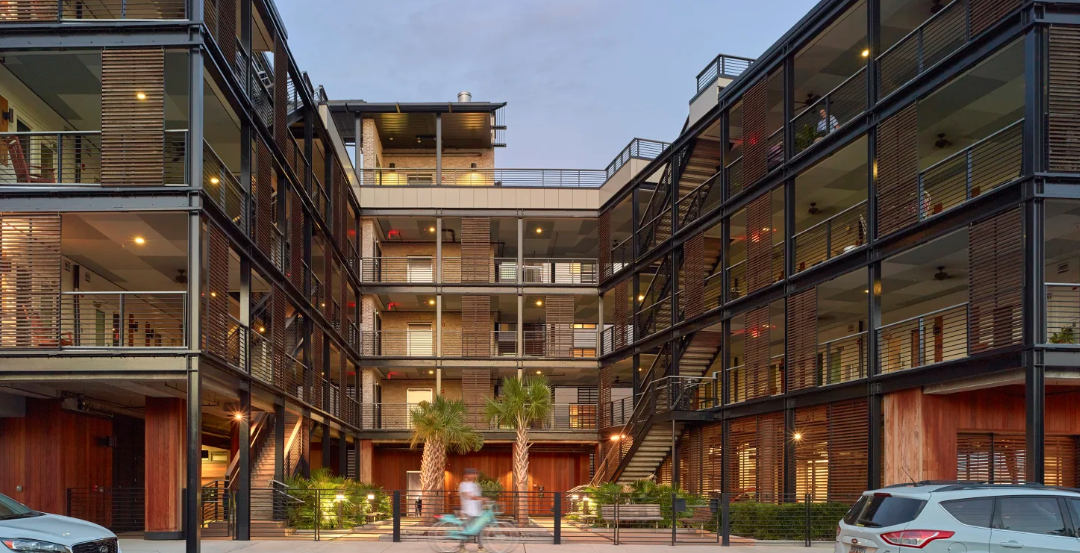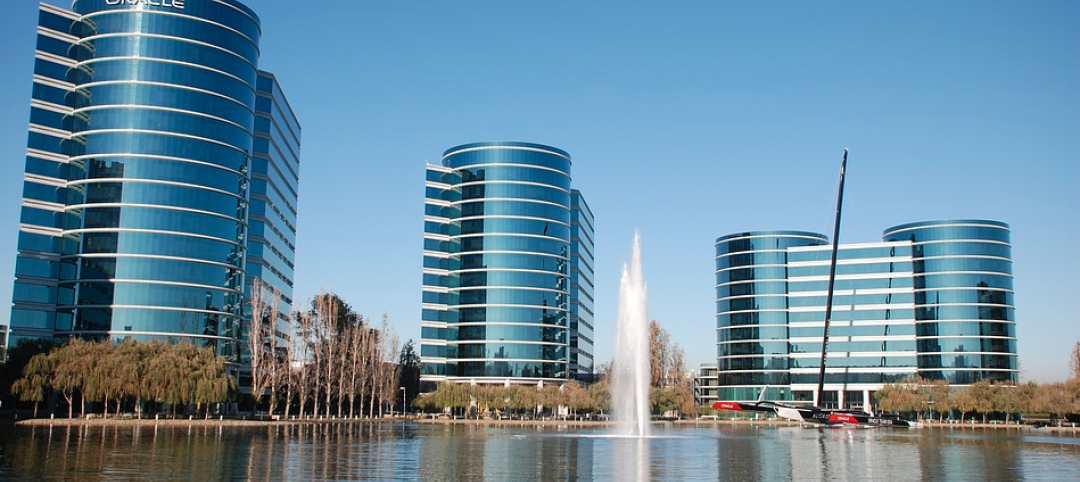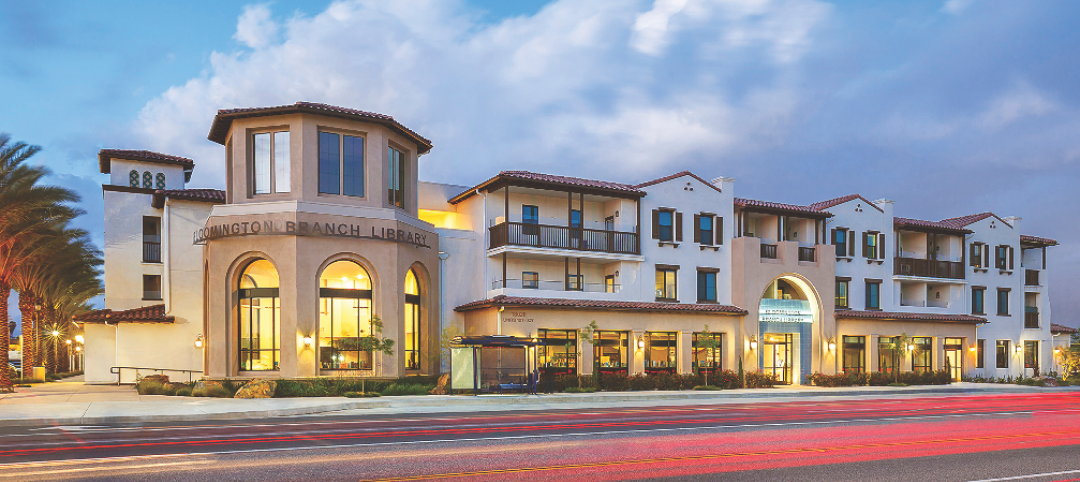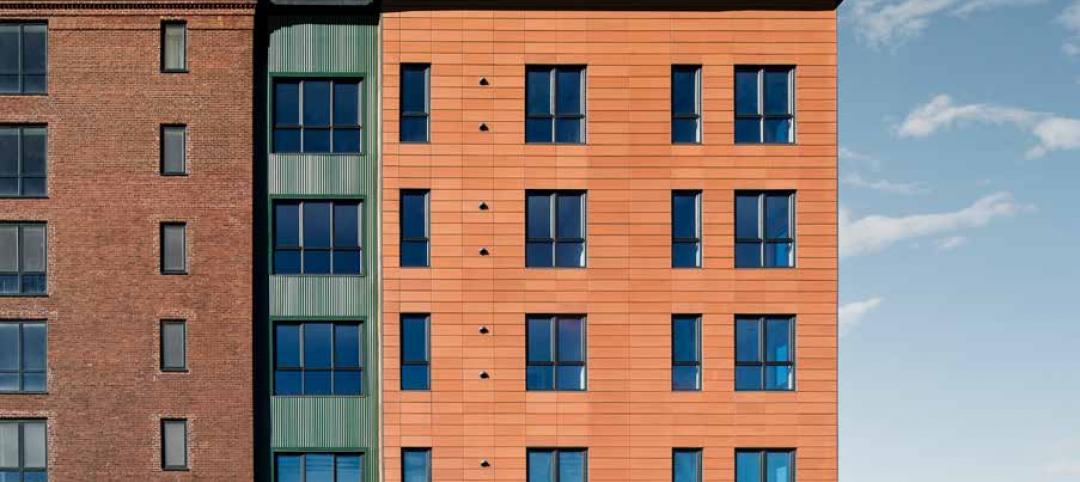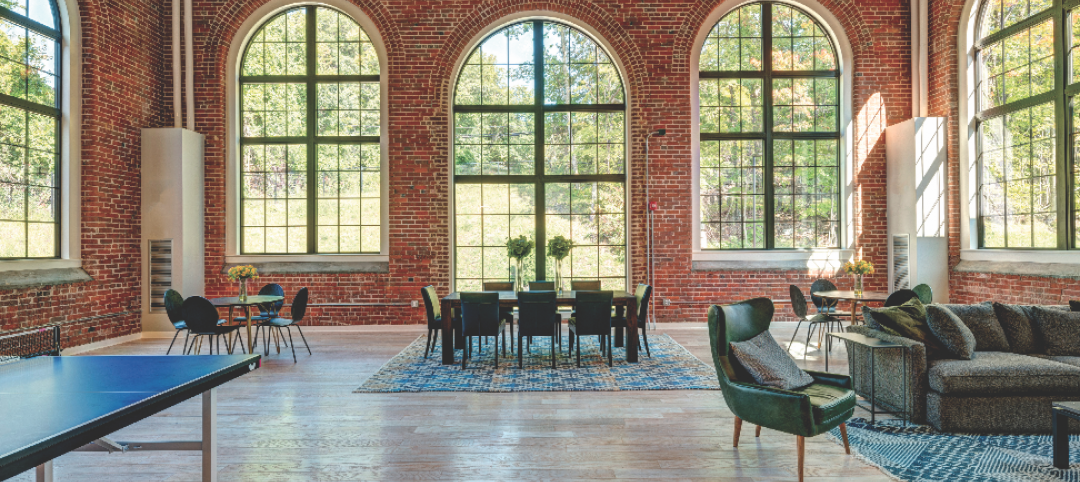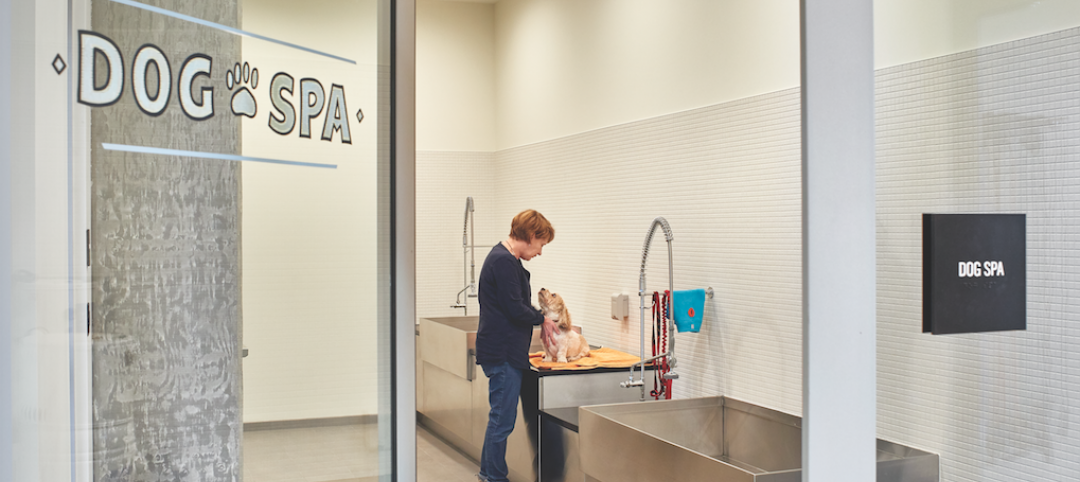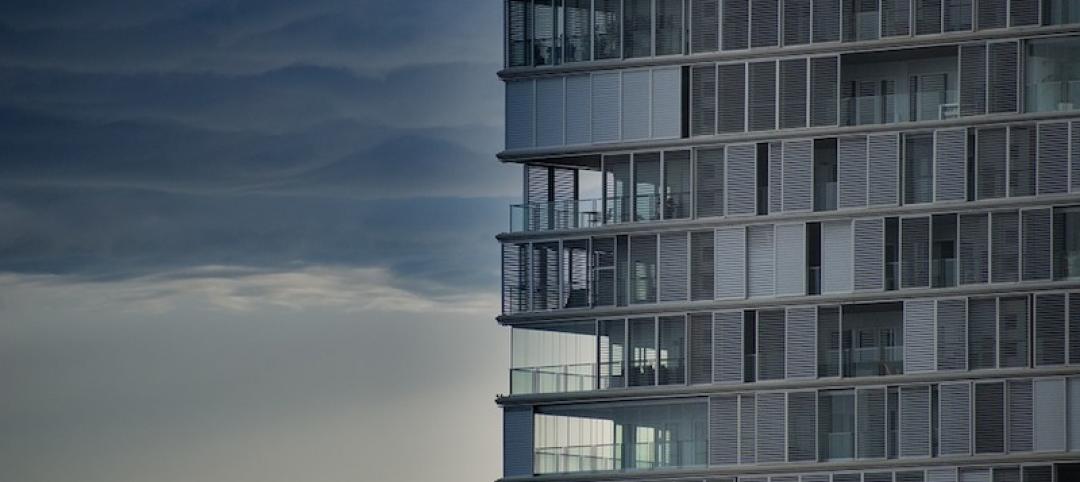The American Institute of Architects’ (AIA) Housing Knowledge Community in conjunction with the Office of the Secretary of the U.S. Department of Housing and Urban Development (HUD) are recognizing four housing designs with the 2019 AIA/HUD Secretary's Awards.
Each year, the AIA and HUD partner to celebrate projects that demonstrate affordable, accessible and well-designed housing, proving that good design is not exclusive. Projects were awarded by the seven-member jury in the following categories:
Excellence in Affordable Housing Design Award
Williams Terrace, Charleston, South Carolina | David Baker Architects
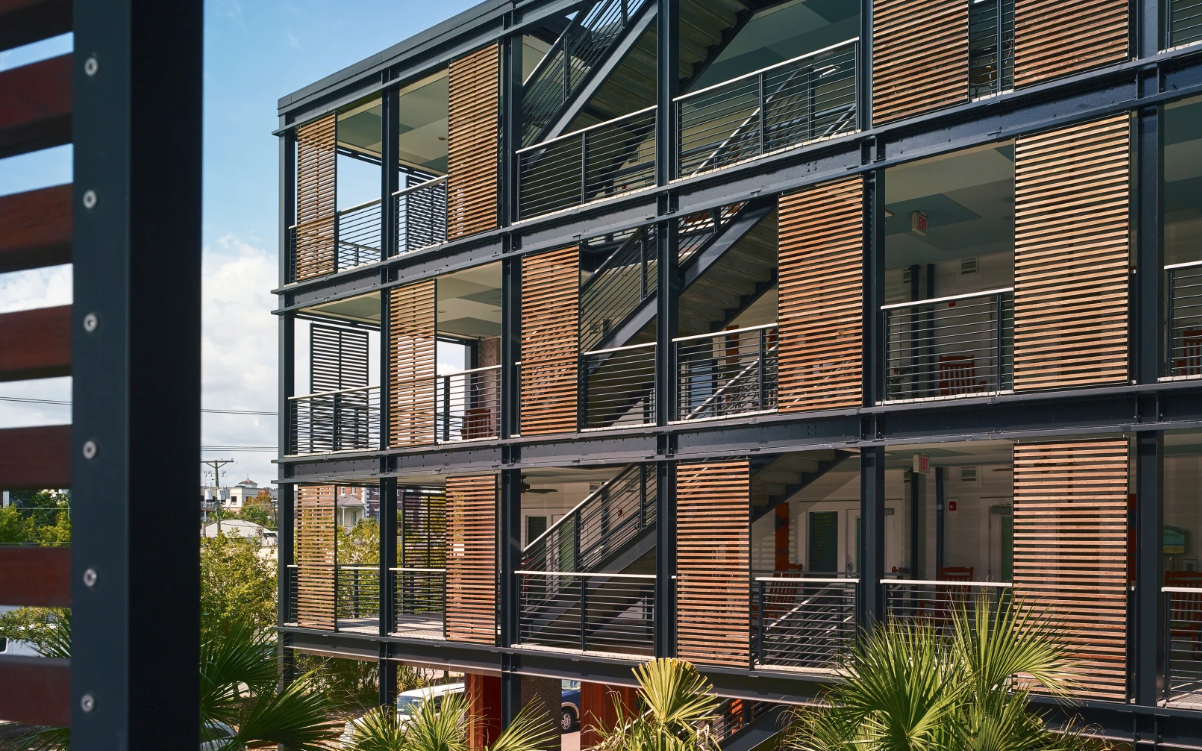 Photo: Luker Photography, courtesy AIA
Photo: Luker Photography, courtesy AIA
The first dedicated housing for Charleston, S.C.’s low-income seniors, Williams Terrace finally replaces housing that was lost to a hurricane in 1989. A collaboration between two firms that combined vernacular knowledge and expertise, the project delivers contemporary new housing that respects and honors the city’s historic fabric.
Working closely with the city’s housing authority, the team’s dynamic design meets the challenges of the site, which is situated in a high-velocity flood zone. The project echoes the iconic Charleston single house, with piazzas that function much like porches. These wide, open-air corridors provide external circulation and surround an airy central courtyard. Lined with ample seating, the corridors encourage interaction and extend the residents’ living space. Louvered shutters allow residents to adjust the amount of shade to their liking while creating an ever-changing façade.
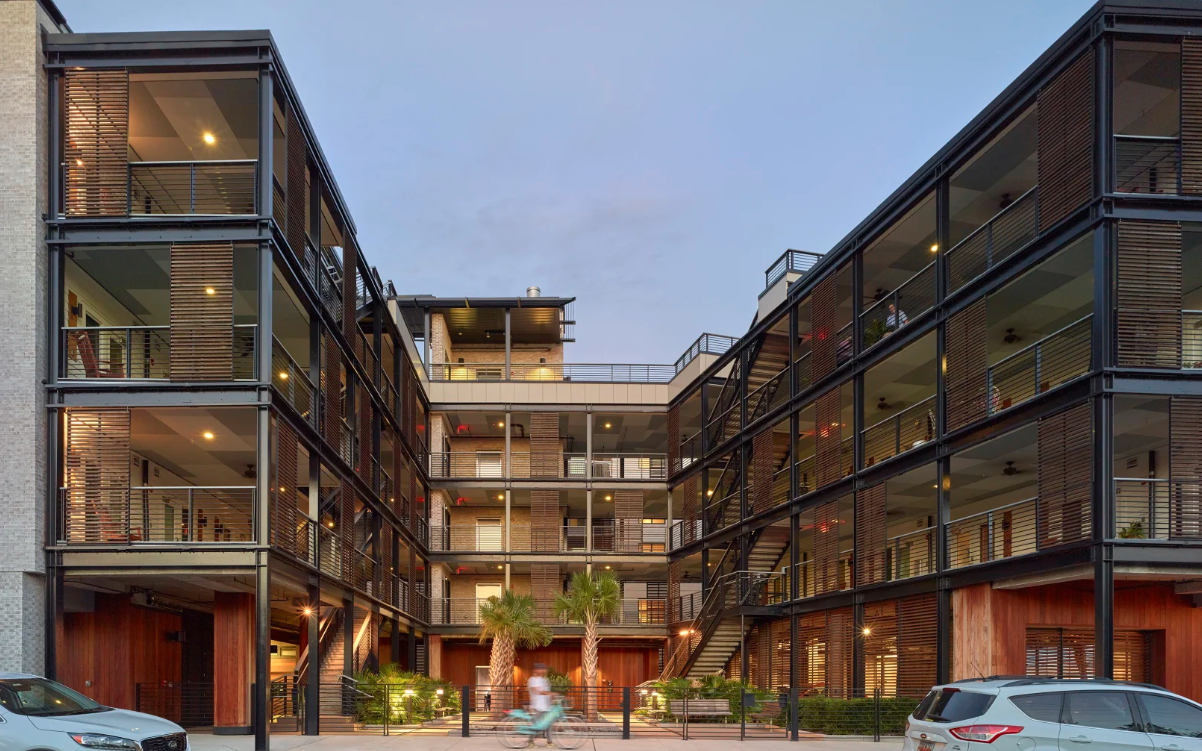 Photo: Luker Photography, courtesy AIA
Photo: Luker Photography, courtesy AIA
On the ground floor, the building’s “screen porch” fronts a new public park that is directly connected by a shaded public sidewalk. While the flexible space does not include any built-in furnishings due to city requirements, it can accommodate a variety of events. To avoid flood damage, a community room is located on the roof and offers views across the park and to the nearby harbor.
Much of Charleston’s public and affordable housing stock located in the suburbs, so this project is an important step in addressing one of the city’s largest challenges: keeping longtime residents downtown.
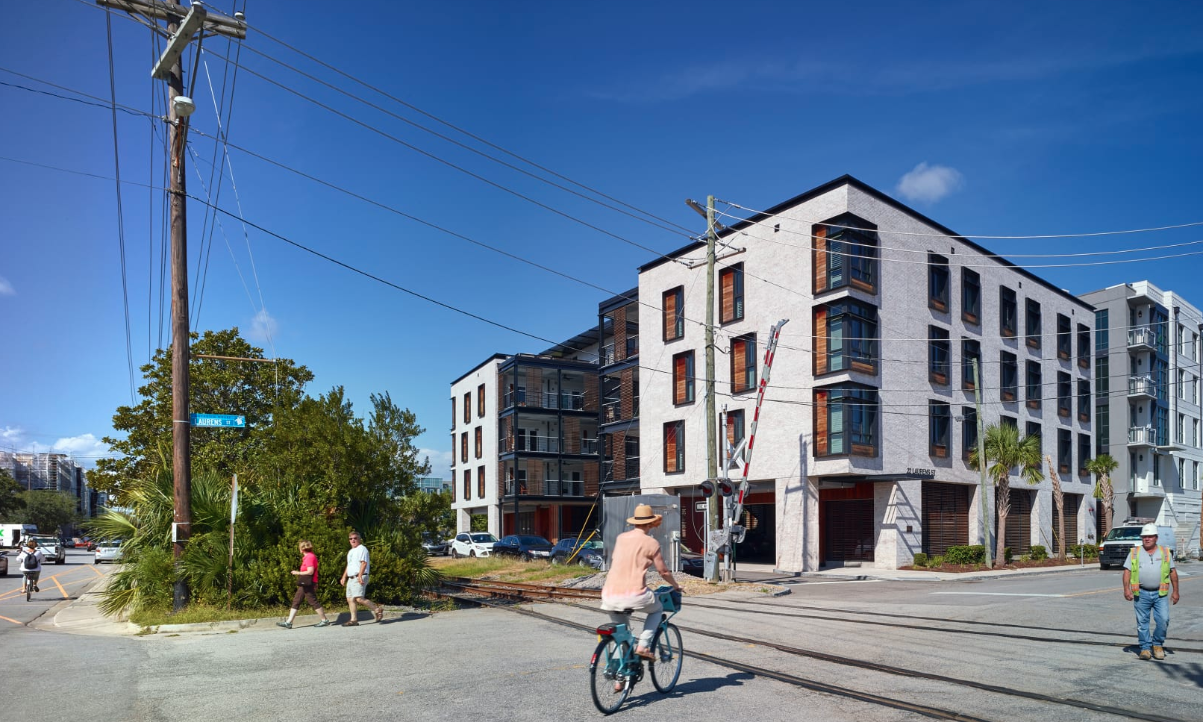 Photo: Luker Photography, courtesy AIA
Photo: Luker Photography, courtesy AIA
Creating Community Connection Award
Anchor Place, Long Beach, California | The Architects Collective
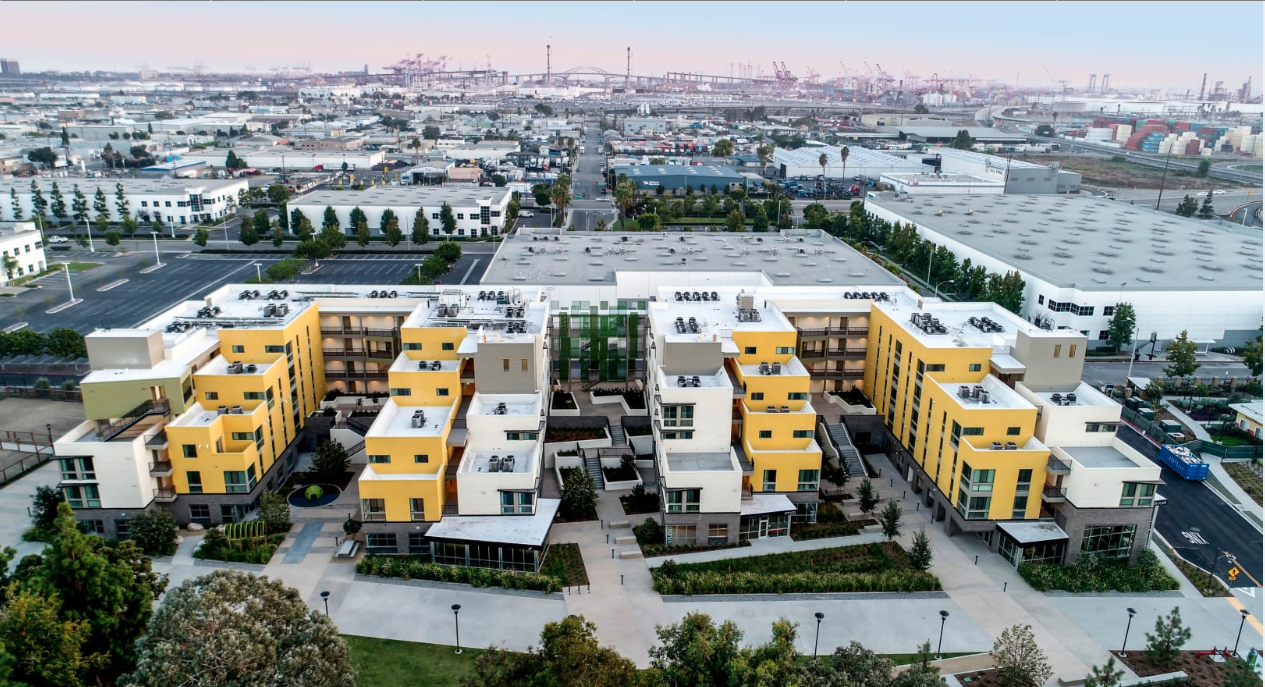 Photo: Panic Studio LA, courtesy AIA
Photo: Panic Studio LA, courtesy AIA
On a former Navy housing site in Long Beach, California, this project aims to break the cycle of homelessness through supportive housing and services for previously homeless veterans and their families. Anchor Place comprises four main components: a new building, renovation of an existing social hall, site-wide landscape, and street-level improvements.
The project reinforces a hierarchy of building and circulation, bolstering the legibility and connectivity of its campus context. With four wings, the design creates three courtyards that directly connect to community-focused amenities on the ground floor. A relocated bus stop connects residents to the city and world beyond, while the landscape helps lead those seeking on-site services directly to them.
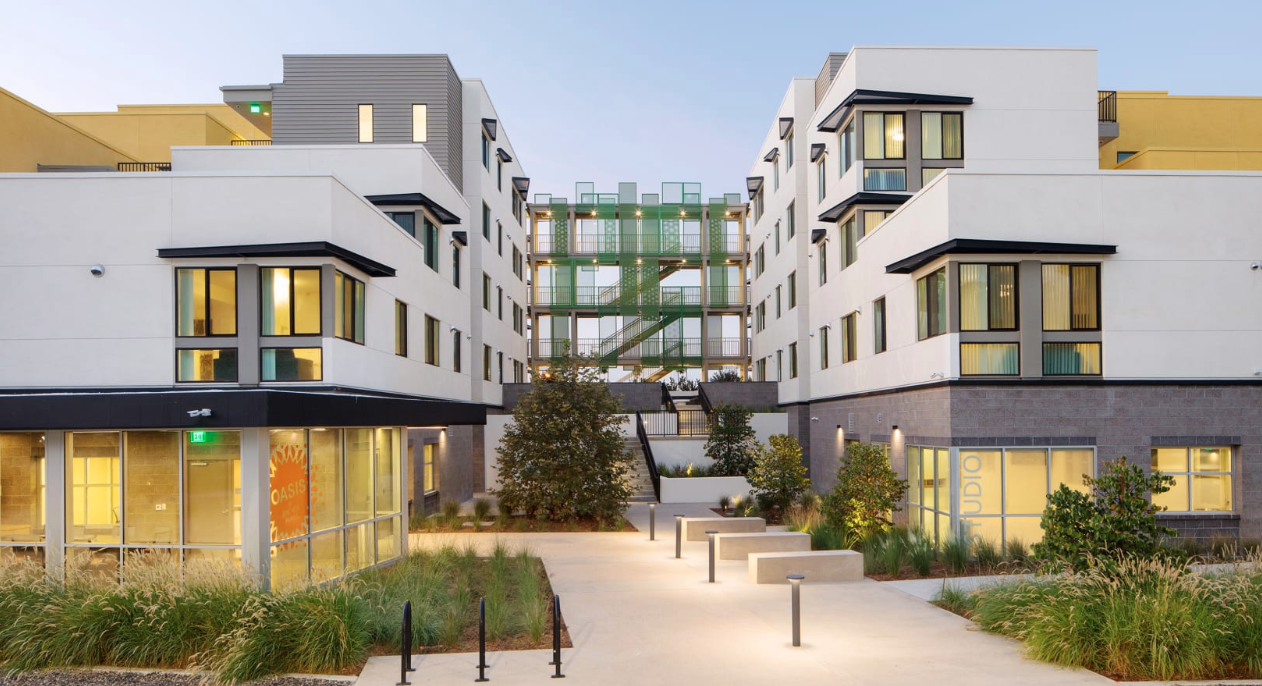 Photo: Panic Studio LA, courtesy AIA
Photo: Panic Studio LA, courtesy AIA
The client’s primary goal was to develop a multiunit housing project that fits synergistically within the existing campus and encourages residents to access provided activities and services. The project offers 120 affordable one-, two-, and three-bedroom units and on-site services that include case management, counseling, and life-skills training, among others. Responding to its context, the design creates a prominent edge on the campus’ southern boundary while extending the east-west pedestrian axis. Three courtyards are all programmed differently and offer space for children to play, social activities, or quiet contemplation.
A social impact report published annually by the community tracks key performance indicators that relate to residents’ physical and mental health, quality of life, and housing stability. In 2017, 69 percent of residents surveyed rated their general health positively, while 77 percent indicated they were happy living in the community.
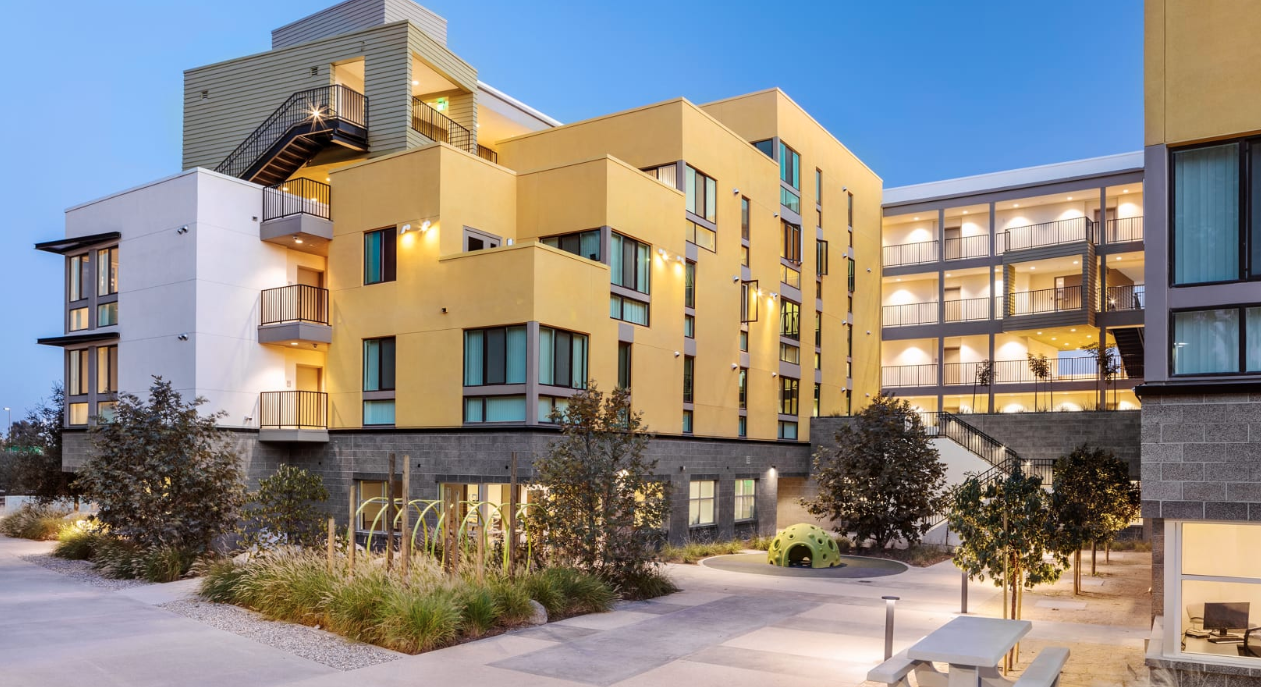 Photo: Panic Studio LA, courtesy AIA
Photo: Panic Studio LA, courtesy AIA
Community-Informed Design Award
8869 Avis, Detroit | Detroit Collaborative Design Center
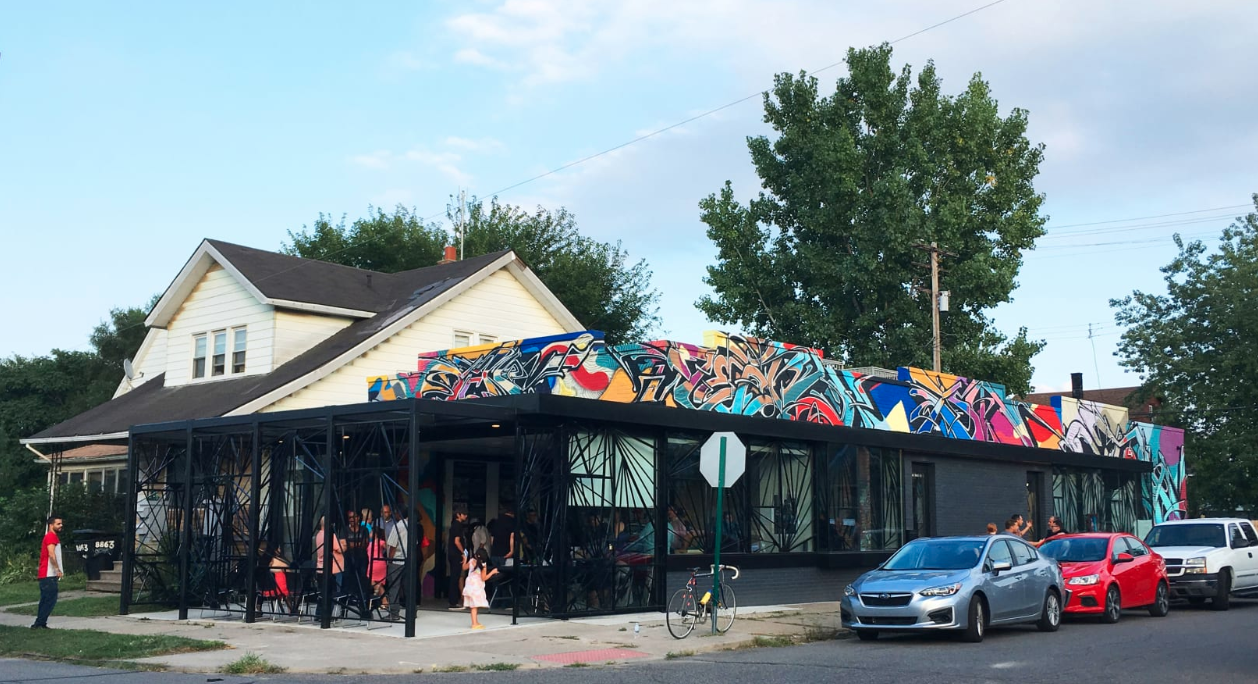 Photo: Ceara O'Leary, courtesy AIA
Photo: Ceara O'Leary, courtesy AIA
An anchor for The Alley Project, an initiative that promotes youth and community development through cultural and place-based initiatives in Detroit, 8869 Avis has transformed a neighborhood alley and surrounding lots into a graffiti gallery that deepens connections between neighbors and community assets. This renovation of an existing 2,400-square-foot building into a community center and the headquarters for Inside Southwest Detroit reflects the vision of the community it serves through its planning, execution, and everyday use.
The project was fostered through a robust relationship between Inside Southwest Detroit, the design team, and a diverse group of stakeholders. From the outset, the process engaged neighbors of all ages, including kids, grandparents, graffiti artists, and skateboarders, resulting in a community space that responds to resident needs and local culture. A series of community workshops and celebrations boosted the stakeholders’ agency and provided a number of venues for them to guide the overall design.
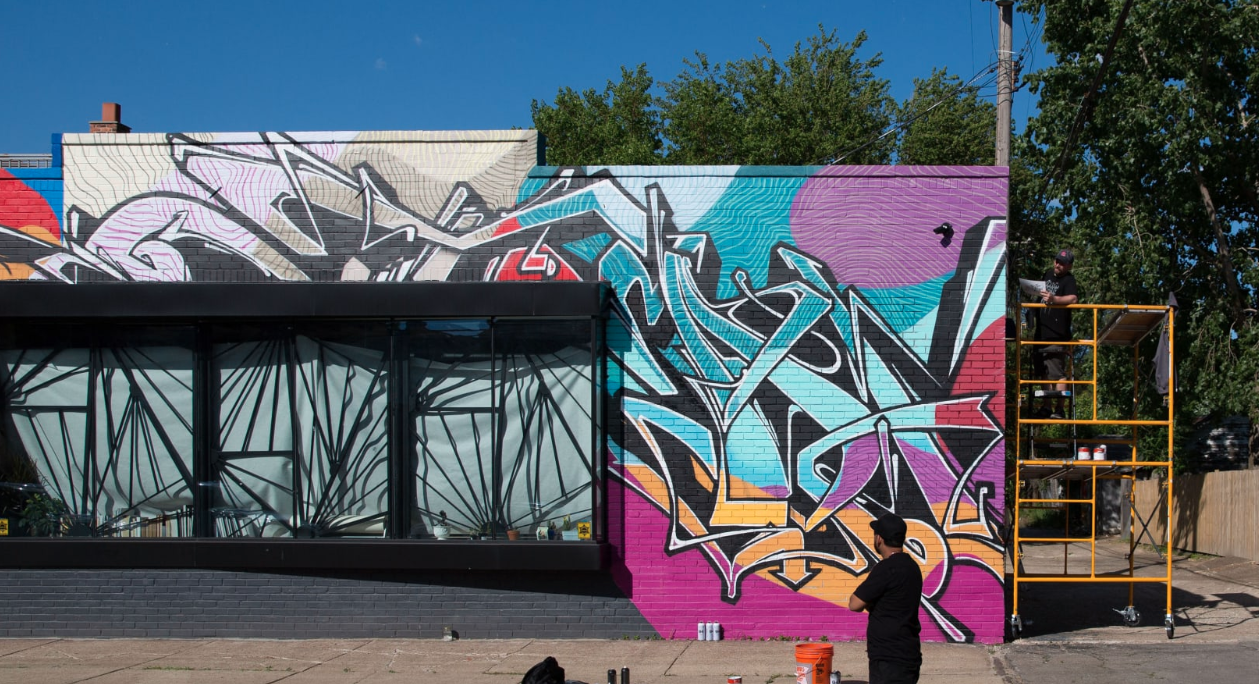 Photo: Erik Paul Howard, courtesy AIA
Photo: Erik Paul Howard, courtesy AIA
8869 Avis delivers a flexible and authentic space highlighted by an enclosed “front porch” area adorned with ornamental geometric ironwork screens. The screens, fabricated by local metalworkers, echo fences found throughout the surrounding neighborhood and contribute equally to transparency and security. The building is wrapped with a mural designed by a late street artist and completed by an Inside Southwest Detroit program alumnus as a tribute.
Inside, wood-finish panels in bold colors and subtle patterns reference the exterior art and metalwork. Large metal doors lend flexibility to the space and pull double duty as functional writing surfaces for meeting notes or spur-of-the-moment artwork.
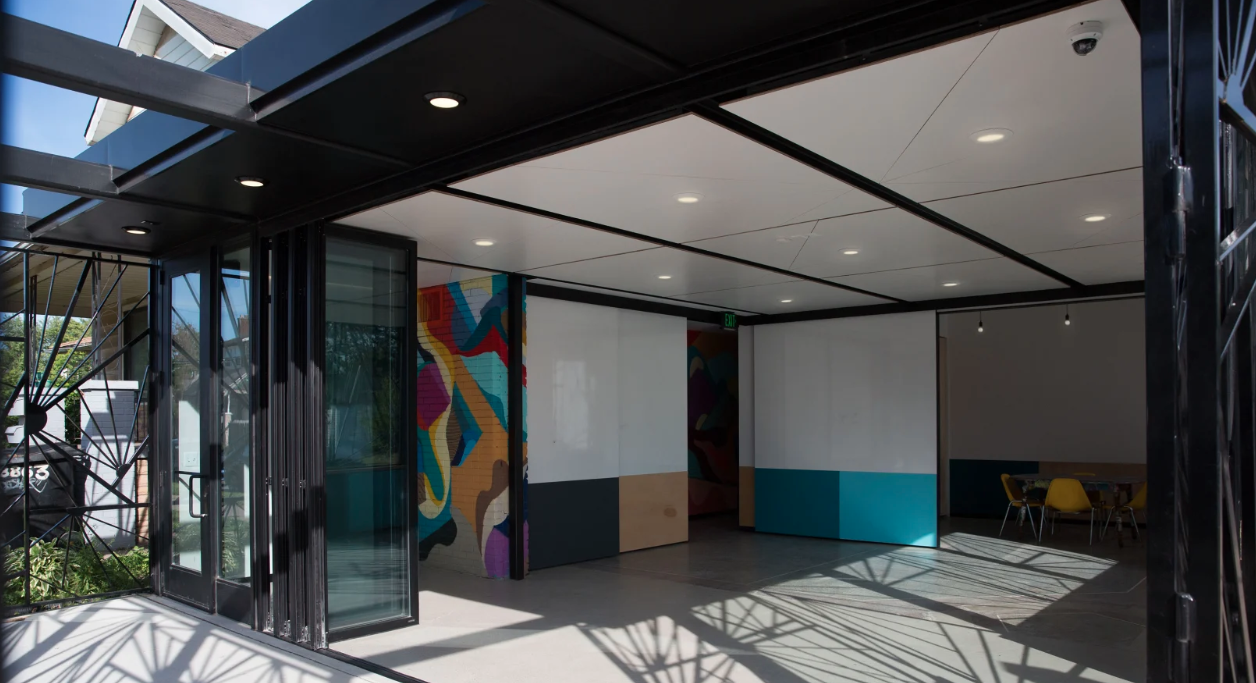 Photo: Erik Paul Howard, courtesy AIA
Photo: Erik Paul Howard, courtesy AIA
Excellence in Housing Accessibility - Alan J. Rothman Award
IFF Access Housing, Chicago | Landon Bone Baker Architects
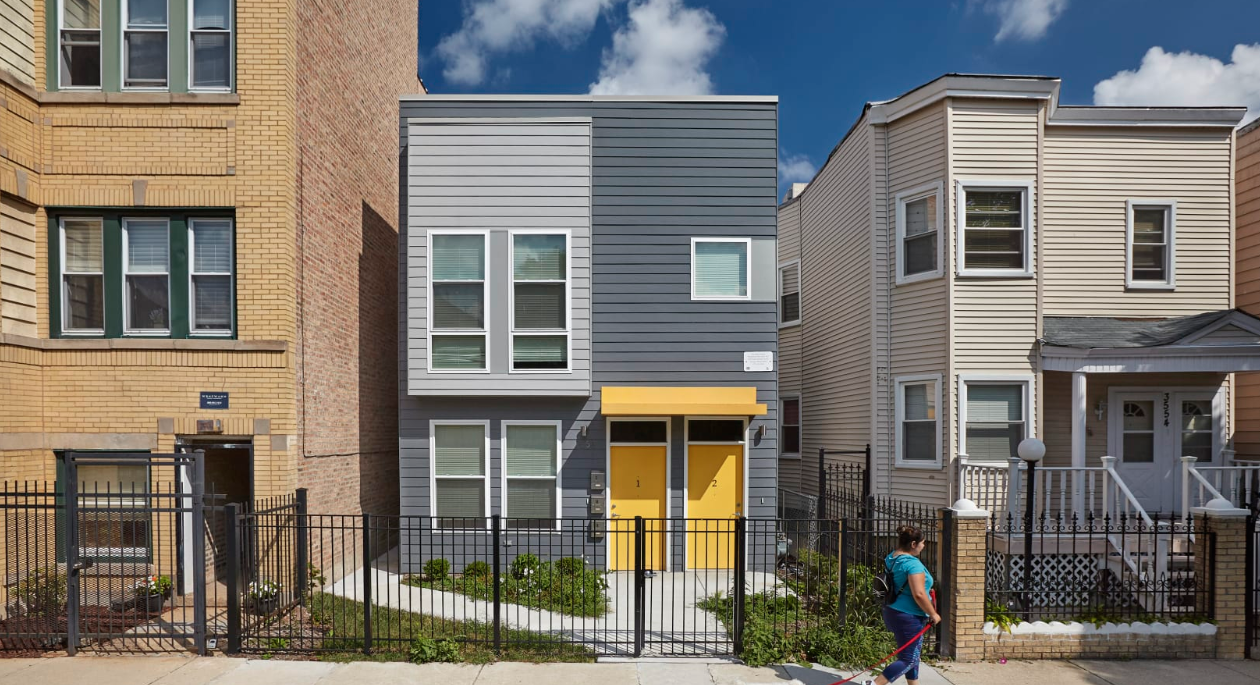 Photo: 2017 dimitre.com, courtesy AIA
Photo: 2017 dimitre.com, courtesy AIA
Capitalizing on vacant homes and infill lots scattered across a 2.5-mile footprint, IFF Access Housing delivers 25 affordable rental homes for people with disabilities while also helping to stabilize Chicago’s Humboldt Park and Logan Square communities. The project is set apart by its human focus and scale, which allow residents to thrive in charming homes that blend into the community rather than concentrating them on a single site.
In these two gentrifying neighborhoods, many of the rentals offered at the same price point were neglected and considered teardowns, though their lots were ideal for infill housing. Renovating the poorly maintained buildings presented the team with significant challenges, but rehabilitation was the most sustainable choice, reinforced by zoning restrictions and a need to preserve the existing urban fabric.
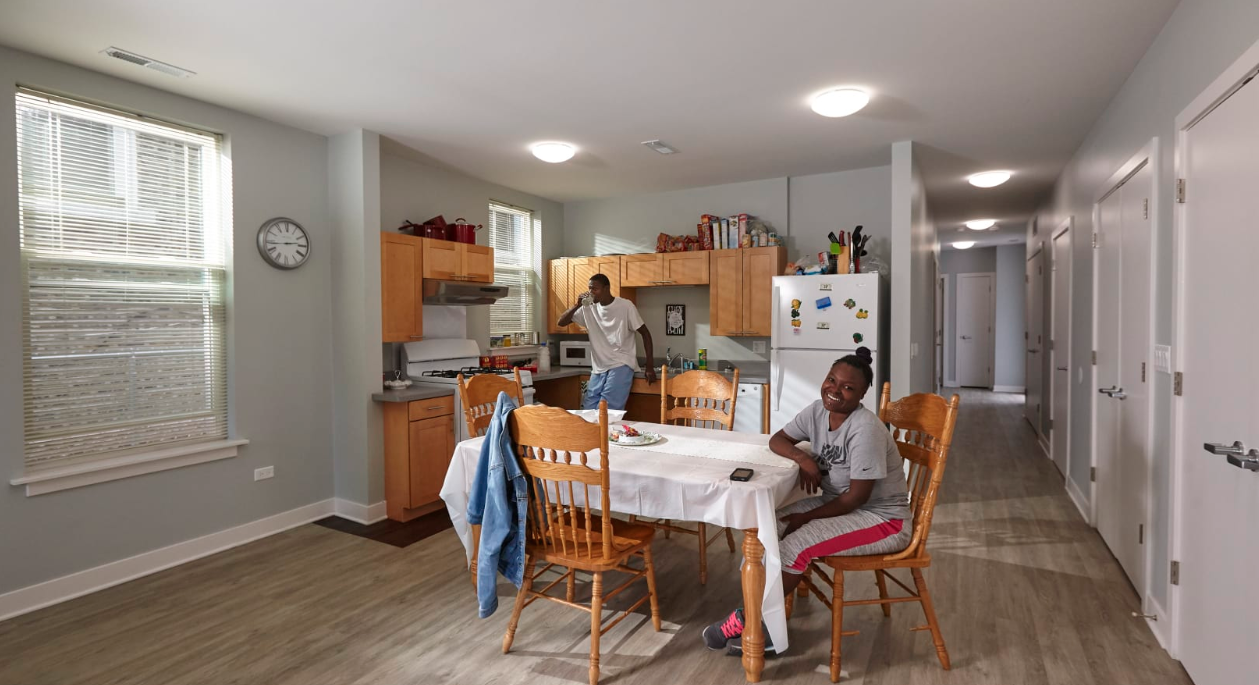 Photo: 2017 dimitre.com, courtesy AIA
Photo: 2017 dimitre.com, courtesy AIA
Since disabilities can take many forms, each home is filled with universal and accessible features. Ground-floor units feature no-step thresholds and low peepholes, while wheelchair-friendly kitchens and thoughtfully designed bathrooms round out the amenities. Each unit includes design features that serve all potential residents, such as soothing color palettes for those with sensory issues and visual doorbells for the deaf.
For the new construction, the project capitalized on the existing context, which comprises a wide array of shapes, sizes, roof forms, and materials. Elements of the new homes directly relate to the surrounding buildings, but their modest forms belie the moniker of affordable housing and delight with their proportions, outdoors spaces, and colors.
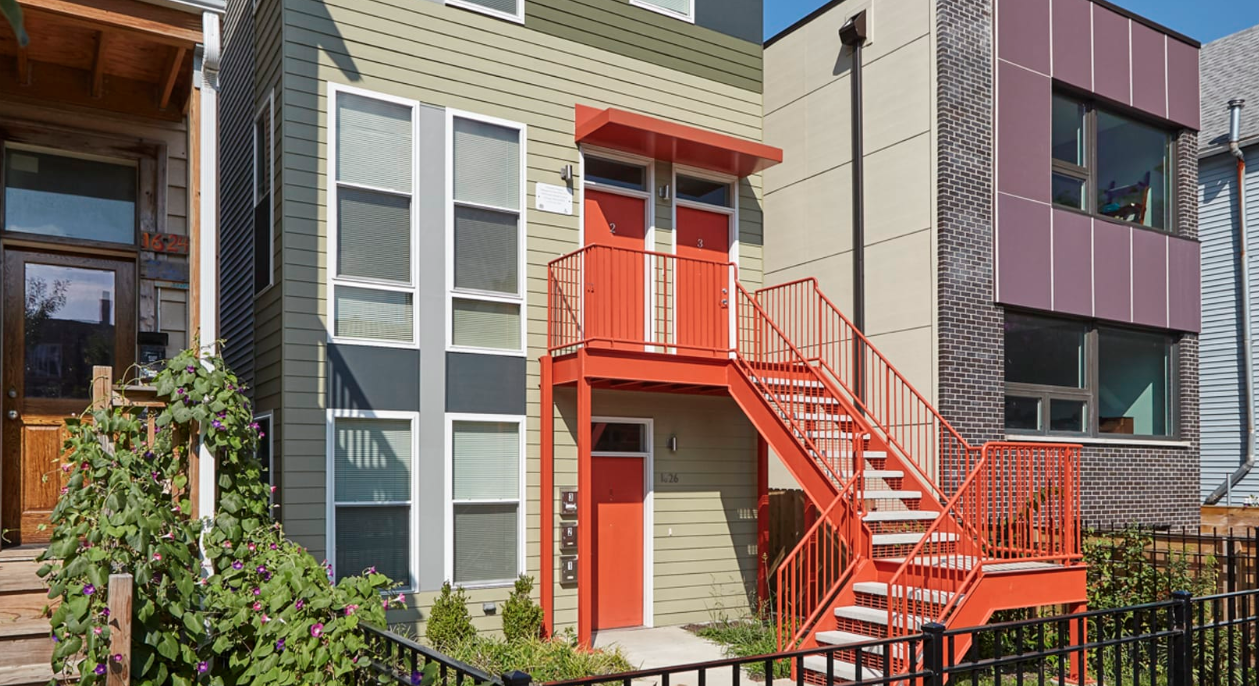 Photo: 2017 dimitre.com, courtesy AIA
Photo: 2017 dimitre.com, courtesy AIA
MORE ABOUT THE 2019 AIA/HUD HOUSING AWARDS
Related Stories
| May 30, 2018
Accelerate Live! talk: From micro schools to tiny houses: What’s driving the downsizing economy?
In this 15-minute talk at BD+C’s Accelerate Live! conference (May 10, 2018, Chicago), micro-buildings design expert Aeron Hodges, AIA, explores the key drivers of the micro-buildings movement, and how the trend is spreading into a wide variety of building typologies.
Codes and Standards | May 30, 2018
Silicon Valley cities considering taxes aimed at large employers
The aim is to offset the impact on housing costs and homelessness by tech companies.
Multifamily Housing | May 30, 2018
Concentrated redevelopment: Apartment complex takes mixed use to the next level
An “intergenerational” mixed-use apartment complex may be a prototype for reenergizing neglected neighborhoods in America’s largest county.
| May 24, 2018
Accelerate Live! talk: Security and the built environment: Insights from an embassy designer
In this 15-minute talk at BD+C’s Accelerate Live! conference (May 10, 2018, Chicago), embassy designer Tom Jacobs explores ways that provide the needed protection while keeping intact the representational and inspirational qualities of a design.
BD+C University Course | May 24, 2018
Building passively [AIA course]
17 tips from our experts on the best way to carry out passive house design and construction for your next multifamily project. This AIA CES course is worth 1.0 AIA LU/HSW.
Multifamily Housing | May 23, 2018
Yankee Dandies: Century-old New England mills become multifamily residences
Having long outlived their original uses, two century-old New England mills have become valuable community assets once again—as multifamily residences.
Multifamily Housing | May 16, 2018
Pampering the pups: Why dog-washing stations are a must-have in multifamily developments
Self-serve dog-washing stations are reinforcing strong bonds between multifamily residents and their beloved canines.
Mixed-Use | May 16, 2018
Los Angeles mixed-use building uses prefabricated wood frame to reduce costs
SPF:architects designed the building.
Multifamily Housing | May 14, 2018
Yardi Matrix report shows U.S. rent surge in April
Year-over-year rent growth leaders in April were Orlando, Fla., Sacramento, Calif., Las Vegas, Tampa, Fla., and Phoenix.
Multifamily Housing | May 9, 2018
6 noteworthy projects: Transit-oriented rental community, micro-unit residences, and an office tower becomes a mixed-use community
These six recently completed projects represent some of the newest trends in multifamily housing.


